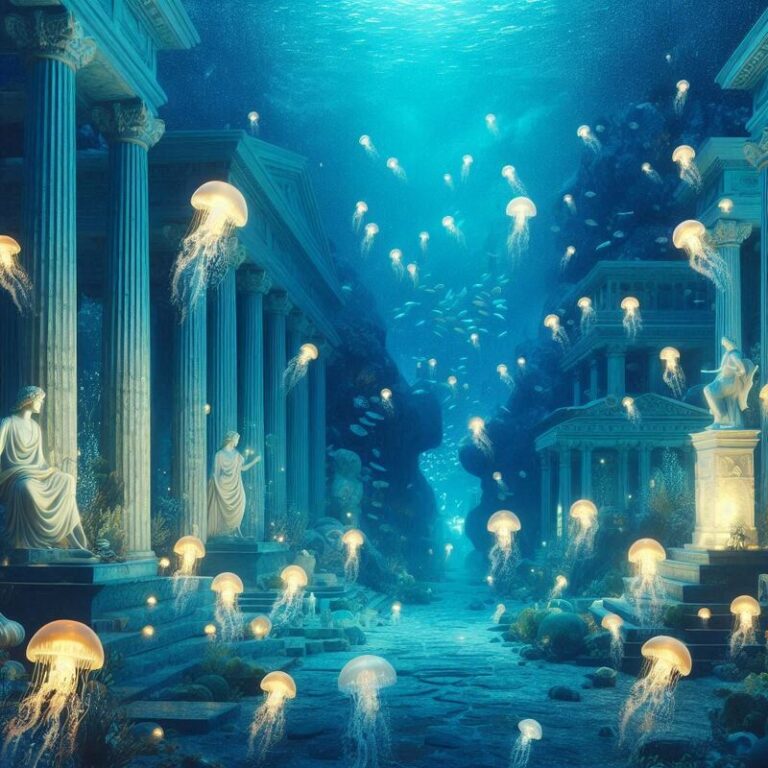The Eternal Bliss of The Elysian Fields
The Eternal Bliss of The Elysian Fields
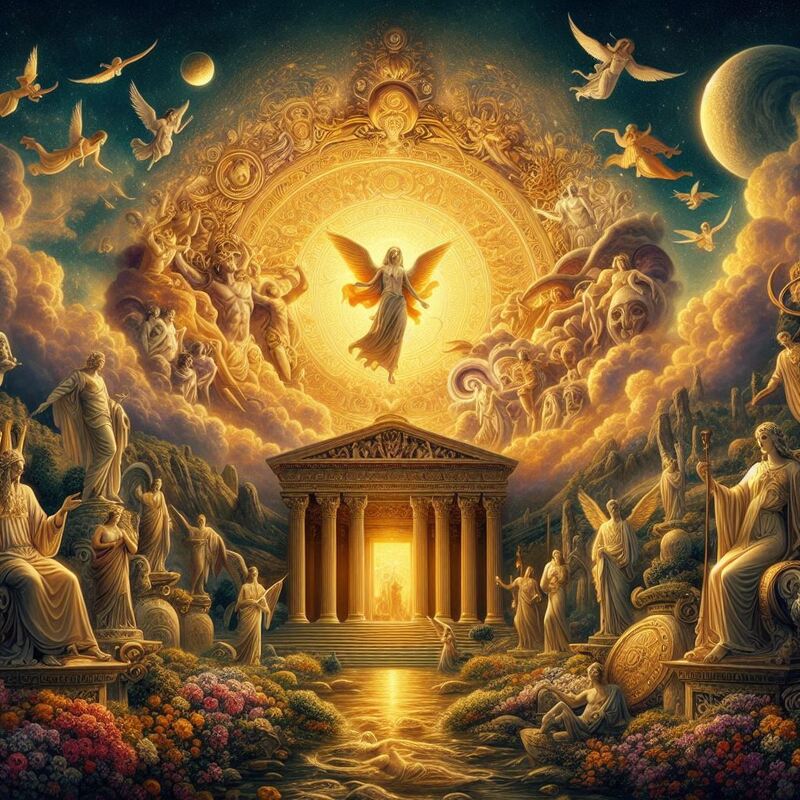
The Eternal Bliss of The Elysian Fields: Exploring Greek Afterlife Legends
In the rich tapestry of Greek mythology, the Elysian Fields, or Elysium, stand out as a realm of eternal bliss reserved for heroes, demigods, and those favored by the gods. This paradisiacal afterlife, a stark contrast to the dreary Underworld where ordinary souls dwelled, offers a glimpse into the ancient Greek conception of reward, virtue, and the divine. Through literature, philosophy, and art, the Elysian Fields have evolved from a simple myth to a complex symbol of ultimate peace and happiness.
Origins and Evolution
The Eternal Bliss of The Elysian Fields
The concept of the Elysian Fields has its roots in ancient Greek religious beliefs and literature. Initially, Elysium was portrayed as a remote island in the western ocean, separated from the mundane world and untouched by sorrow or toil. The earliest mention of Elysium appears in Homer’s works, particularly the “Odyssey,” where it is described as a place where the favored of the gods reside, enjoying an eternal springtime and effortless abundance.

As Greek culture and religious thought evolved, so did the depiction of Elysium. Hesiod, in his “Works and Days,” introduced the idea of Elysium as a paradisiacal realm distinct from the Isles of the Blessed. Over time, the two concepts merged, and Elysium became synonymous with the ultimate reward for the virtuous and heroic.
Geography and Description
The Eternal Bliss of The Elysian Fields
The geographical conception of Elysium varies across different sources. Some describe it as an island in the western ocean, while others place it within the Underworld, yet separate from its more somber regions. In Virgil’s “Aeneid,” Elysium is situated within the Underworld but distinctly apart from the darker realms where ordinary souls endure their afterlife.
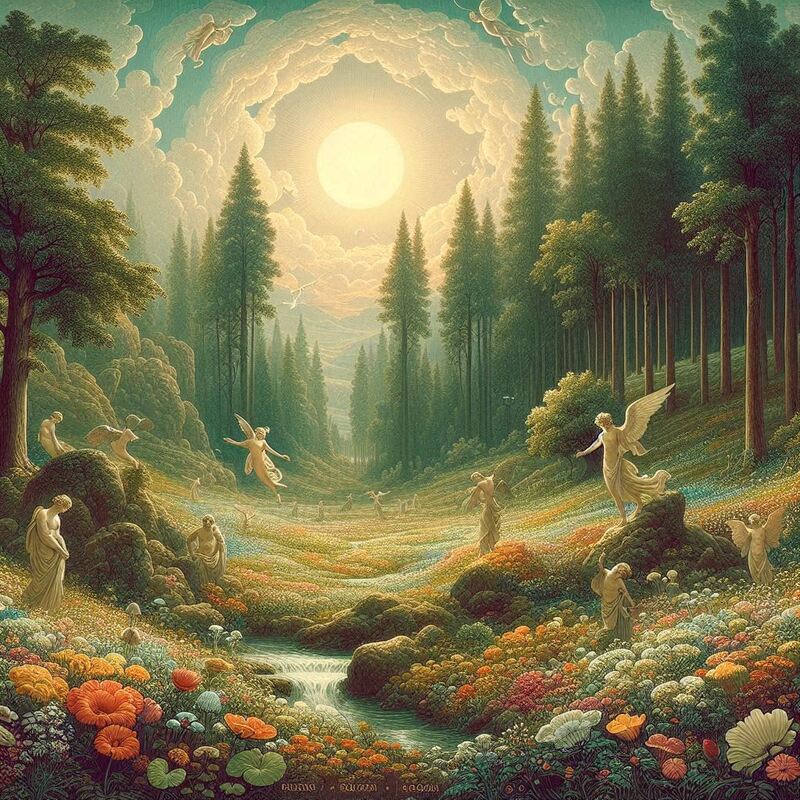
The Elysian Fields are often depicted as a place of lush meadows, blooming flowers, and perpetual sunlight. Rivers of sweet water flow through this idyllic landscape, and the air is filled with the fragrance of blooming trees and the melodious songs of birds. The inhabitants of Elysium engage in leisurely activities, such as music, dance, and athletic contests, all free from the constraints of time and labor.
Inhabitants of Elysium
The Eternal Bliss of The Elysian Fields
Elysium was reserved for a select few: heroes, demigods, and those who had lived righteous lives or were favored by the gods. The criteria for entry into Elysium varied, reflecting the evolving moral and religious values of Greek society. Initially, heroism and divine favor were the primary qualifications. Later, moral virtue and piety became significant factors.
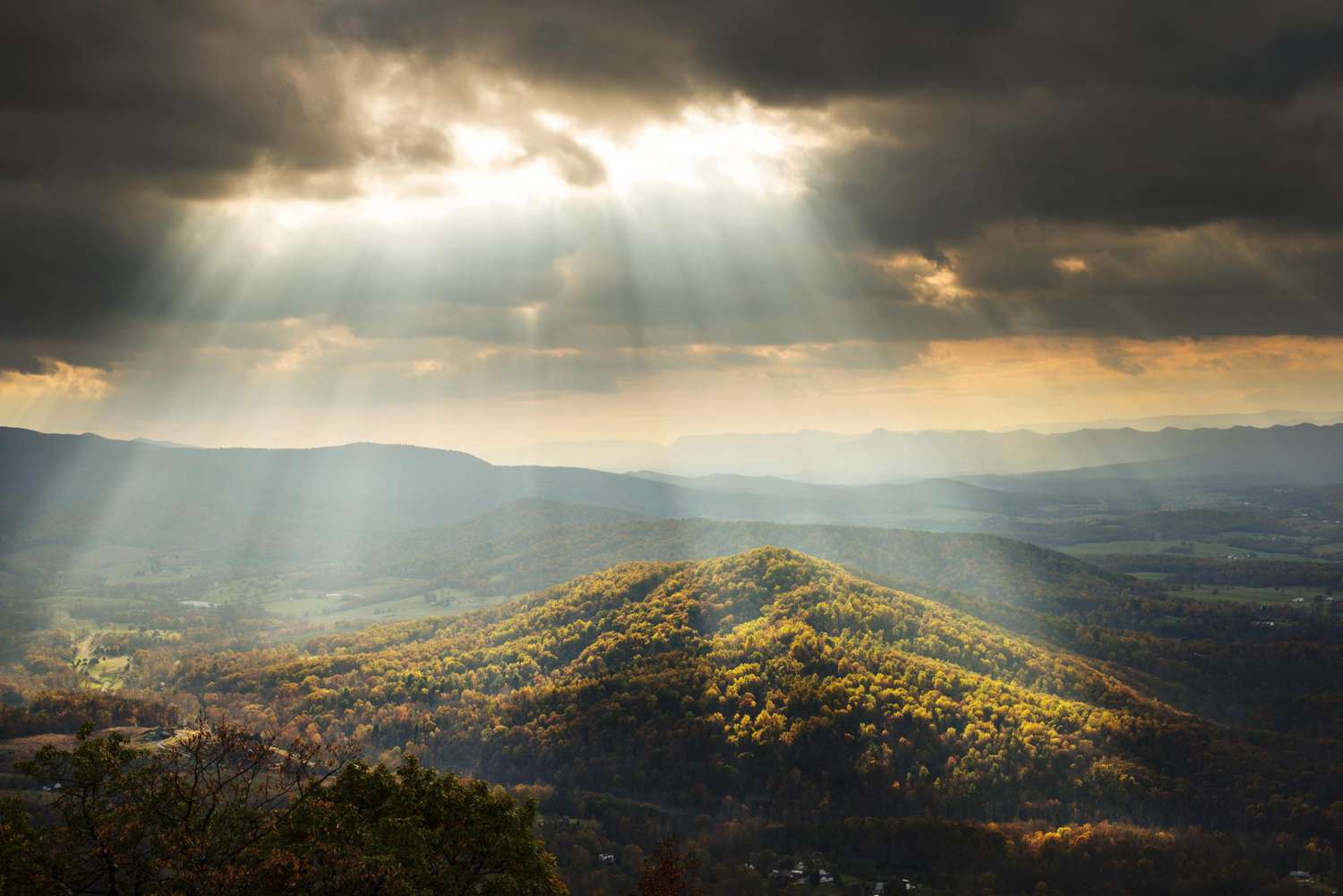
Prominent figures in Greek mythology who were granted a place in Elysium include Achilles, who, despite his tragic fate, was celebrated for his unparalleled heroism; Orpheus, the legendary musician whose music could charm even the gods; and Aeneas, the Trojan hero whose piety and bravery were extolled by Virgil. These inhabitants lived in eternal bliss, free from the hardships and sufferings that marked mortal existence.
Symbolism and Philosophy
The Eternal Bliss of The Elysian Fields
The Elysian Fields symbolize the ancient Greek ideals of heroism, virtue, and divine reward. They represent a utopian vision where the best aspects of mortal life—beauty, leisure, and joy—are eternally preserved. This conception of the afterlife reflects the Greeks’ understanding of the cosmos and the human soul’s potential for greatness and moral excellence.
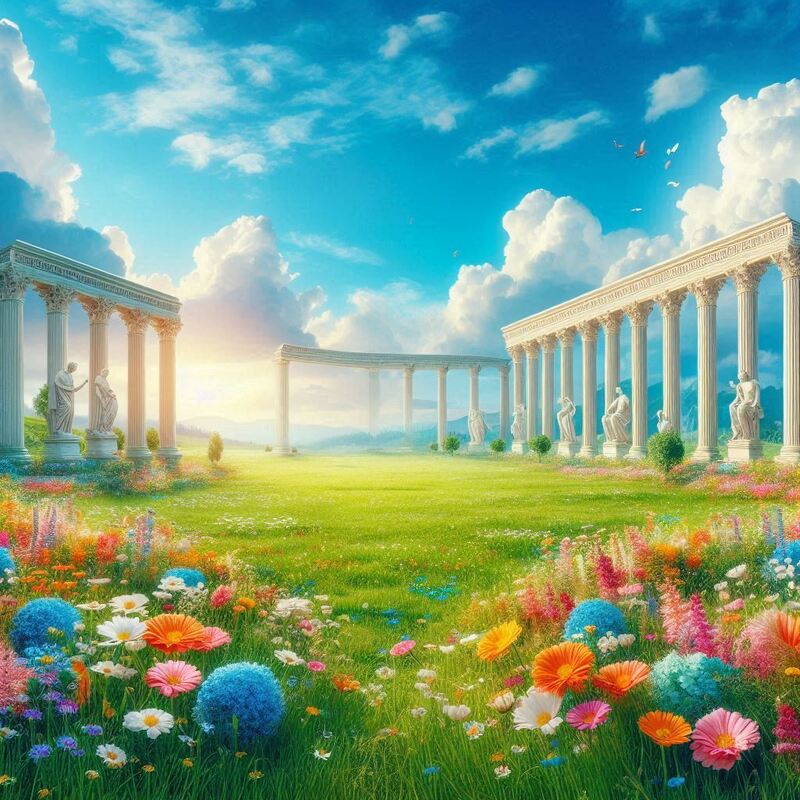
In philosophical terms, Elysium also embodies the concept of a reward-based afterlife, influencing later religious and philosophical thought. The idea that the virtuous and heroic are rewarded in the afterlife provided a moral framework that encouraged noble deeds and virtuous living. This belief system paralleled and sometimes intersected with the moral philosophies of figures like Socrates, Plato, and Aristotle, who emphasized the importance of virtue and the pursuit of a higher good.
Elysium in Literature and Art
The Eternal Bliss of The Elysian Fields
The Elysian Fields have been a rich source of inspiration in literature and art. In addition to Homer and Hesiod, later poets and writers, such as Pindar and Virgil, elaborated on the theme of Elysium. Pindar’s “Odes” celebrate the glory of the heroic dead and their eternal reward in Elysium, while Virgil’s “Aeneid” provides one of the most detailed literary descriptions of the Elysian Fields.
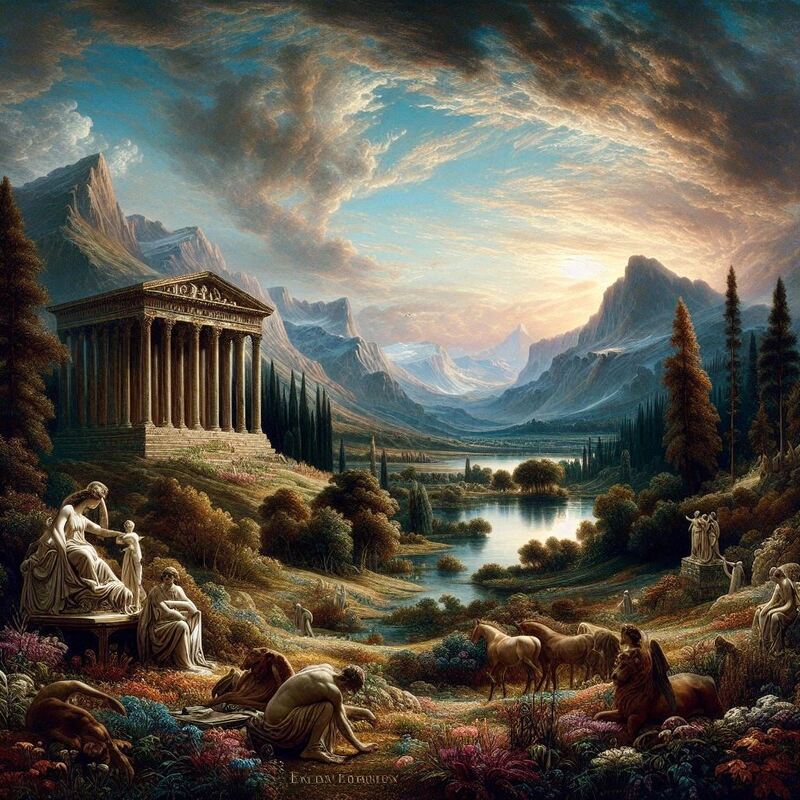
In visual art, Elysium has been depicted in various forms, from ancient vase paintings to Renaissance frescoes. These artworks often portray a serene and harmonious landscape, filled with flourishing vegetation and contented souls, reflecting the ideals of peace and eternal happiness.
Influence on Later Traditions
The Eternal Bliss of The Elysian Fields
The concept of the Elysian Fields has influenced various cultural and religious traditions beyond ancient Greece. In Roman mythology, Elysium retained its significance as a place of eternal reward, seamlessly integrating into Roman beliefs about the afterlife. The Christian notion of Heaven shares some similarities with Elysium, particularly in its depiction as a paradise for the righteous and virtuous.
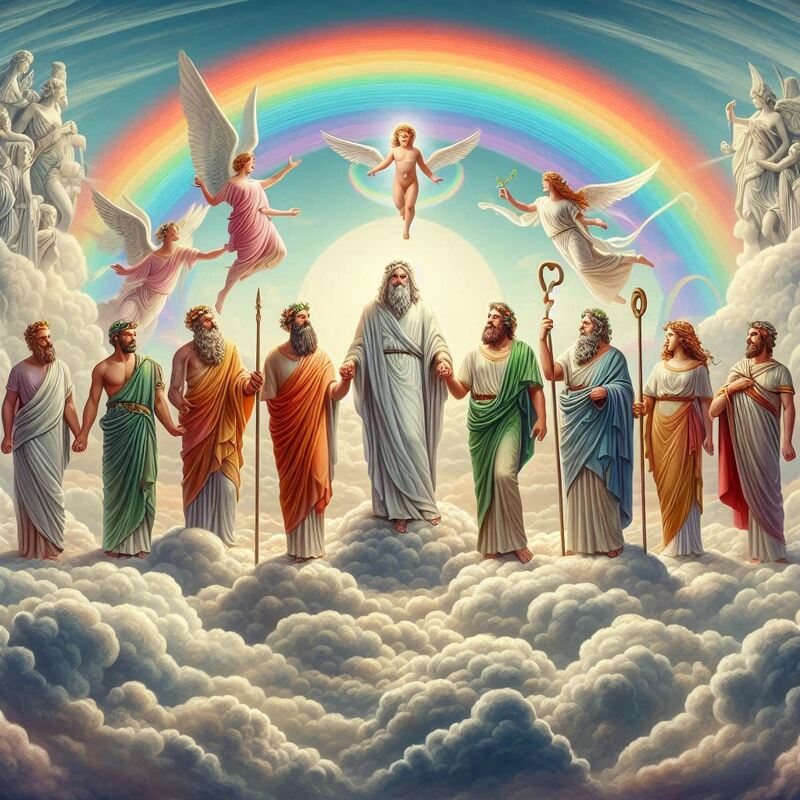
Elysium has also found its way into modern literature and popular culture. Fantasy and science fiction often draw on the idea of a utopian afterlife, with Elysium serving as a prototype for idyllic realms where heroes find rest and reward. The enduring appeal of Elysium lies in its portrayal of an ultimate haven, a place where the human soul achieves perfect peace and fulfillment.
The Eternal Bliss of The Elysian Fields
Conclusion
The Elysian Fields remain one of the most evocative and enduring symbols in Greek mythology. They represent the ancient Greeks’ highest ideals of heroism, virtue, and divine favor, offering a vision of the afterlife where the best of human existence is eternally preserved. Through literature, philosophy, and art, the myth of Elysium has transcended its origins, continuing to inspire and captivate the human imagination.
In exploring the Elysian Fields, we uncover not only the ancient Greeks’ views on life and death but also a universal yearning for a place of perfect happiness and peace. Whether as a literal afterlife or a metaphor for the ultimate reward of a virtuous life, Elysium remains a powerful and timeless symbol of eternal bliss.


